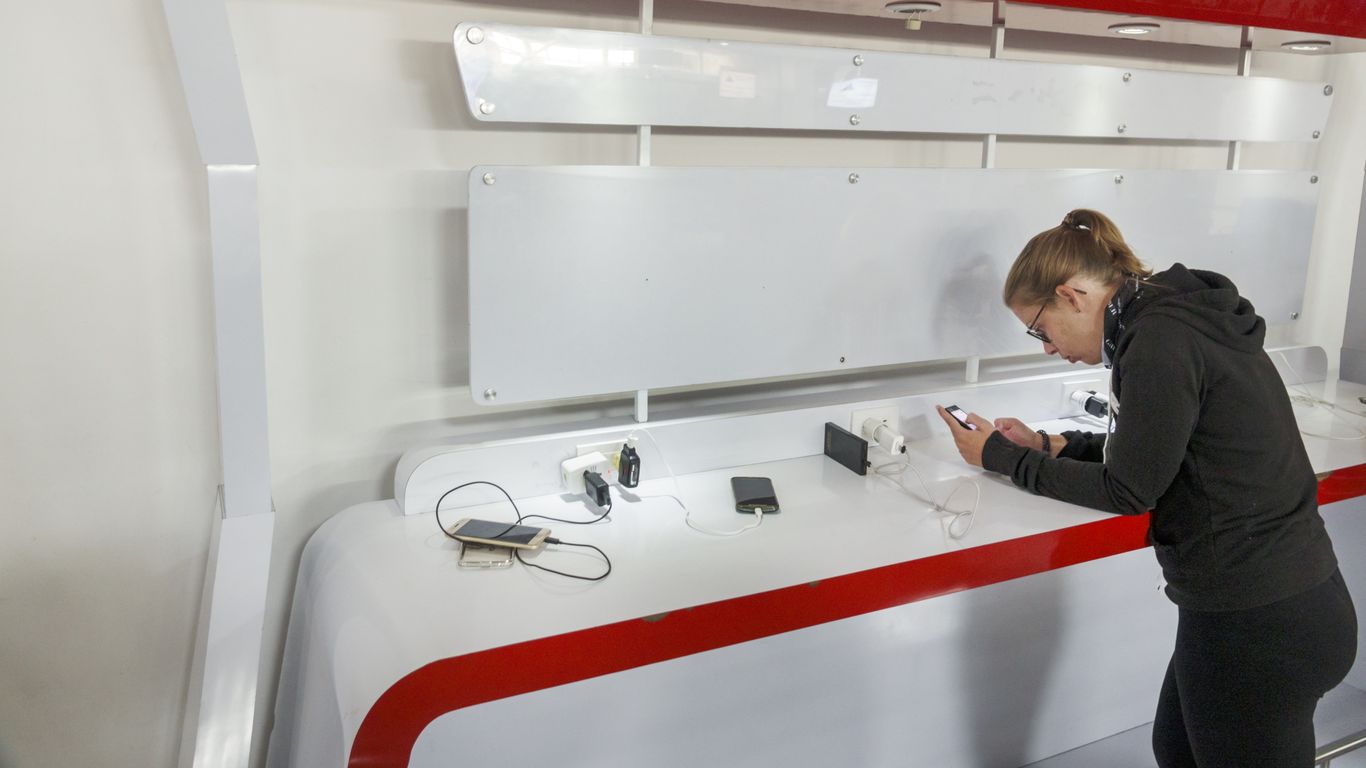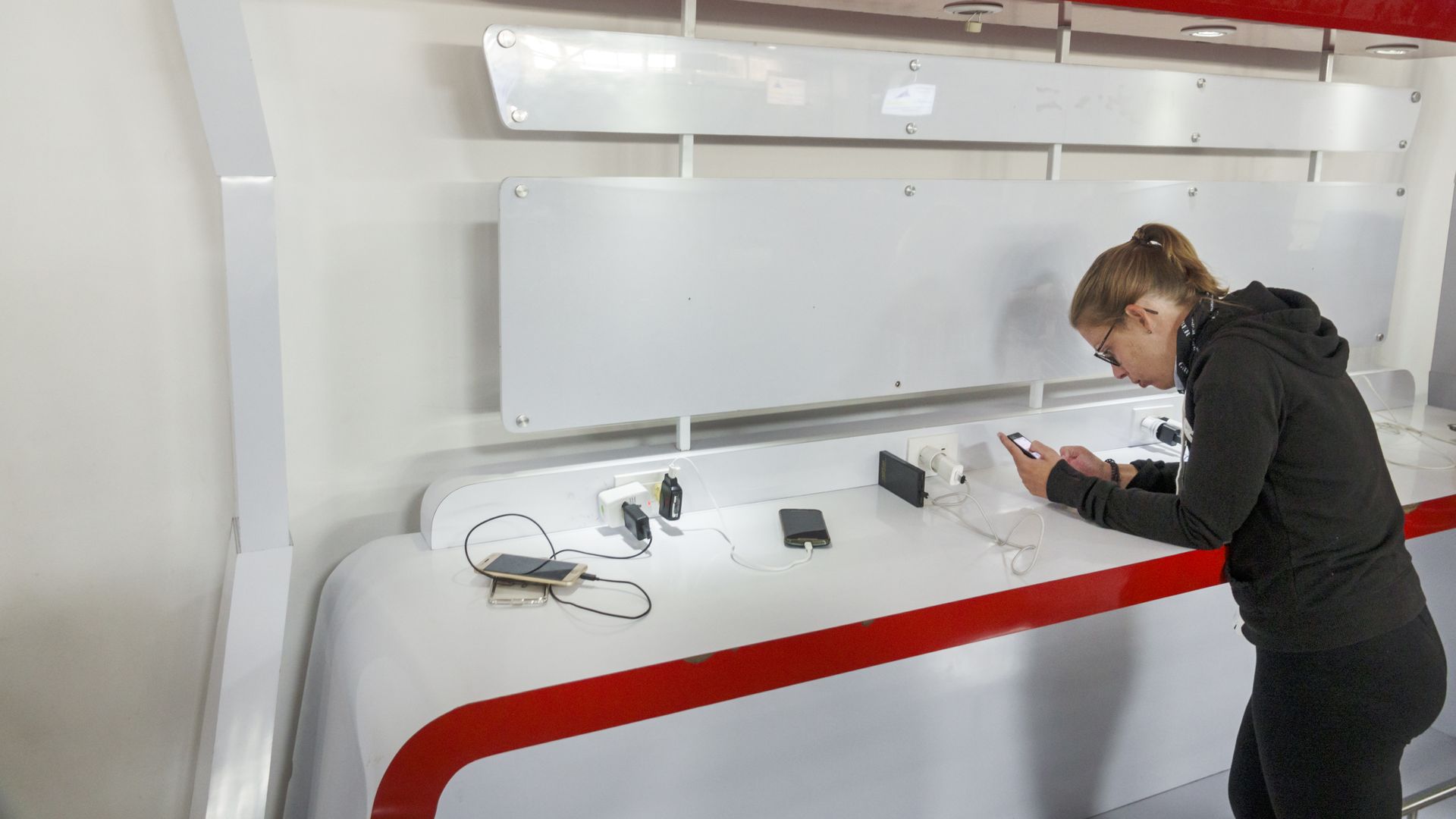A smartphone charging station at an airport. Photo: Jeffrey Greenberg/Education Images/Universal Images Group via Getty Images
You might want to think twice about plugging your devices into public charging stations, according to the FBI.
Driving the news: "Avoid using free charging stations in airports, hotels or shopping centers," the FBI cautioned on Twitter recently. "Bad actors have figured out ways to use public USB ports to introduce malware and monitoring software onto devices."
- The tweet from the FBI's Denver office did not identify any recent incidents that could have prompted the fresh warning.
- The FBI said it was just a regular reminder, and directed Axios to an online FCC consumer warning last updated in 2021.
- "Juice jacking," the FCC says in the warning, is "a new cyber-theft tactic."
How it works: "Cybersecurity experts have warned that criminals can load malware onto public USB charging stations to maliciously access electronic devices while they are being charged," the FCC says.
- "Malware installed through a dirty USB port can lock a device or export personal data and passwords directly to the perpetrator," the FCC added.
- "Criminals can use that information to access online accounts or sell it to other bad actors."
- "In some cases, criminals have left cables plugged in at the stations," the FCC said.
Our thought bubble: Few cases of “juice jacking” have been publicly reported in recent years, and it’s a difficult attack for malicious hackers to pull off, Axios cybersecurity reporter Sam Sabin notes. However, if successful, researchers have warned that “juice jacking” could give malicious actors unfettered access to their devices as they charge.
Be smart: To avoid becoming a victim of "juice jacking," carry your own charger and USB cord, the FCC says.
- Use an electrical outlet instead of a USB charging station.
- Carry a portable charger or external battery.
- Get a charging-only cable from a trusted supplier to prevent data from being sent or received while charging.
Of note: Hackers can also use public Wi-Fi networks to target your devices and data.
- Don't conduct any sensitive transactions, including purchases, while on public networks, the FBI recommends.
Editor's note: This story has been updated with additional comment from the FBI.
Source: Read Full Article

